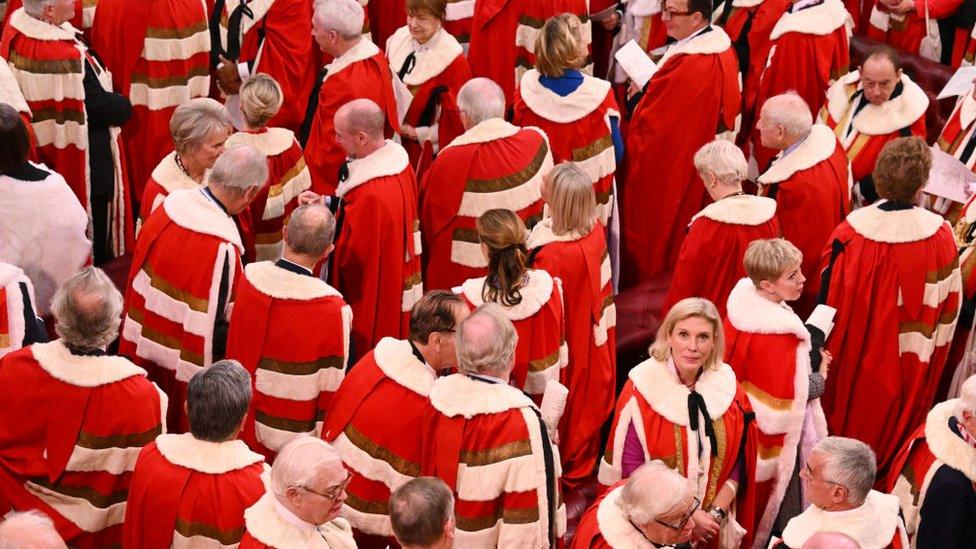Carmen Smith: New 28-year-old peer who wants to scrap the House of Lords
- Published
As a member of Plaid Cymru, Baroness Smith wants to see the House of Lords abolished.
At 28 years old, Plaid Cymru activist Carmen Smith has become the youngest member of the House of Lords.
The upper chamber has an average age of 71 - but it's not just this which makes hers an unusual appointment.
As a member of the Welsh nationalist party, Baroness Smith believes in an independent Wales and wants to see the House of Lords abolished.
Speaking to the BBC ahead of being formally introduced as a peer, she acknowledged she would be one of very few members campaigning to put herself out of a job.
"I fundamentally disagree with an unelected chamber," she says.
"However, while it exists, we must have voices there that are standing up for the people of Wales because decisions are made there that impact them."
Baroness Smith admits the public attention following her appointment has been harder to deal with than she had anticipated.
Some critics claimed she got the job only because she was a woman - pointing to the party's internal process, which ensured its first nomination for a new peer was female.
This meant that while she came second to a man in a vote of party members, it was she who ended up in the Lords.
"I knew I'd be targeted for my age and being a woman. However, I didn't know how it would feel until it actually happened," she says.
"I take fair criticism, I'm always happy to have a debate. But when it's about something personal it is difficult."
Baroness Smith defends the process by which she was nominated, arguing it helps to improve the representation of women in a chamber that is 70% male.
Plaid Cymru is one of only two parties - along with the Greens - who elect their nominees for the Lords.
Under the party's nomination system, after five years Baroness Smith will also be subject to a reselection process to see if members want her to continue in the role.
She says this makes the selection of representatives for what is an unelected chamber more democratic.
Baroness Smith believes the fact she is a woman has fuelled negative reactions to her appointment.
She draws parallels with Conservative peer Baroness Owen who also prompted criticism when she became the new youngest member of the Lords at 30 years old, after being nominated by Boris Johnson.
Baroness Smith argues a man appointed at the same time who was just one year older - Lord Kempsell - received far less negative coverage, despite both having similar experience as former advisers to the prime minister.
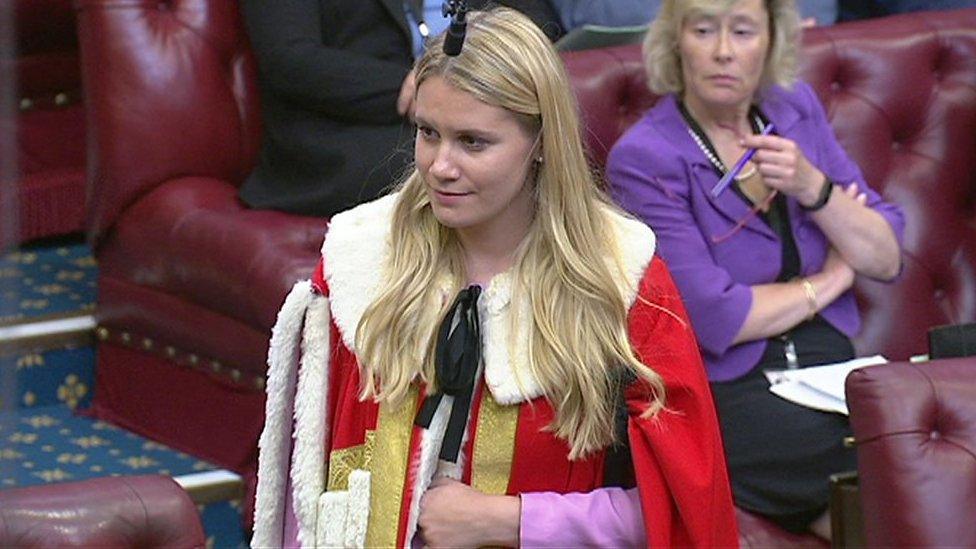
Baroness Owen was the previous youngest member of the Lords
Working in politics since her early 20s, Baroness Smith says being singled out as young is "nothing new".
As chief of staff for the Plaid Cymru group in the Senedd she says there were times when people presumed she was doing an admin role.
Despite her rapid rise through the party, a political career was not always on the cards.
Growing up on a council estate in Llanfaes, a small village in north Wales, she didn't have any interest in politics until she was about 15.
It was meeting Leanne Wood, who was Plaid's leader at the time and knocked on her door while canvassing for local elections, that inspired her to start following the party.
"She was very down to earth and easy to talk with," she says. "Different to the others that you see in politics stereotypically."
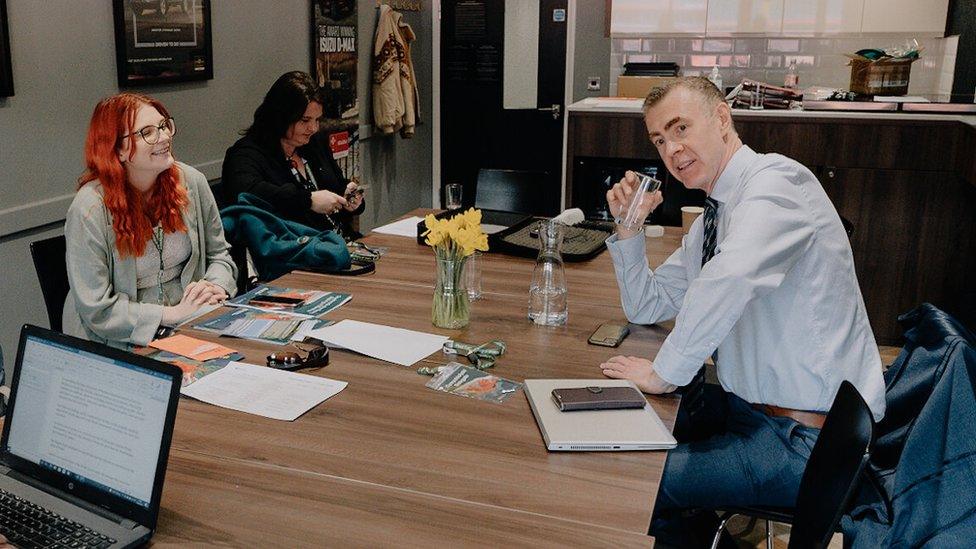
Baroness Smith served as chief of staff for Plaid Cymru in the Senedd when Adam Price (right) was party leader
The youngest of seven siblings, Baroness Smith was the first in her family to go to university, studying law at Bangor.
After her first year she was elected as deputy president of the National Union of Students in Wales and dropped out of her studies to take up the position full time in Cardiff.
The role was her first taste of campaigning, as she successfully secured a change to the system for student carers claiming financial support so it was no longer means tested.
From the age of around 14, she had helped to care for her father, who had dementia.
"I know what it feels like to be passed round the houses, to need to explain your situation to someone and how emotionally exhausting that is to try and get access to the support you might need," she says.
"The obstacles were actually quite easy to remove, but unless you have people in the room that have experienced that, then how are you going to actually change it or realise why something's an issue?"
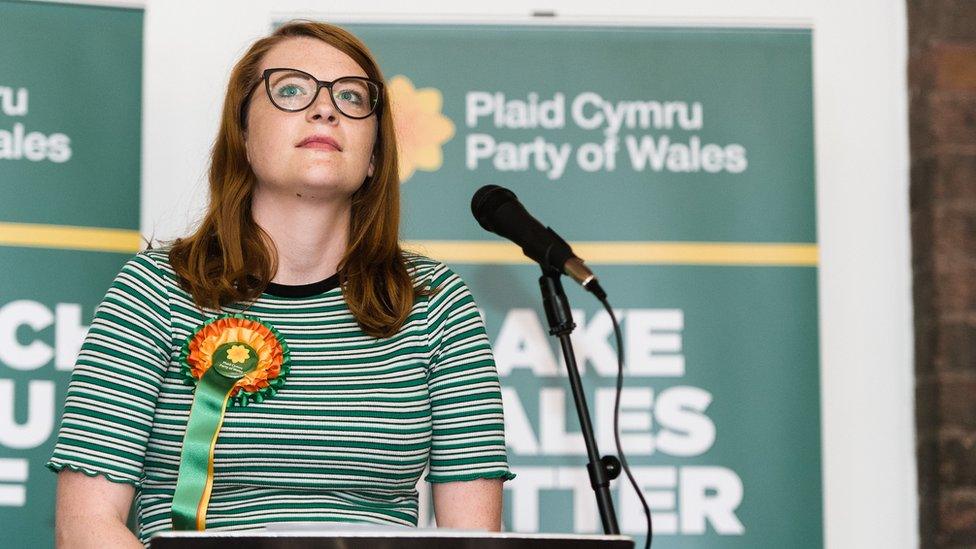
Baroness Smith unsuccessfully stood to be a member of the European Parliament in 2019
Since then she has worked in the charity sector as well as for a Plaid MEP in the European Parliament and standing as a candidate herself in 2019.
Most recently she has worked in communications for a renewable energy company, although she's giving up her job to be a peer.
As Baroness Smith of Llanfaes she hopes to bring a fresh perspective to the chamber.
"I'm not going there to be part of the establishment or the club," she says. "I'm going there to shake things up."
She'll start by wearing one of the fake fur robes on offer for her introduction ceremony, rather than a traditional ermine robe, and taking her oath in Welsh.
Once established, she says she wants to be a voice for groups who are less likely to be heard when laws are being shaped - whether that's young people or Welsh rural communities.
"Where decisions are made on legislation that affects people across the UK, it must be people that are representative of them that are part of making those decisions," she says.
Among the issues she hopes to focus on is coal tip safety, pointing out that this is paid for by the Welsh government, despite the contribution of mining communities to the whole of the UK.
As a life peer, Baroness Smith is entitled to sit in the Lords until she dies but she has no plans to do so.
"I don't see it as a job for life," she says. "I want to bring in new voices and hand over that baton to someone else."

INSEPARABLE SISTERS: The seven-year-old conjoined twins who defied all odds
JUNE: VOICE OF A SILENT TWIN: The tragic story of June, her sister and their life in Broadmoor

Related topics
- Published10 February 2024
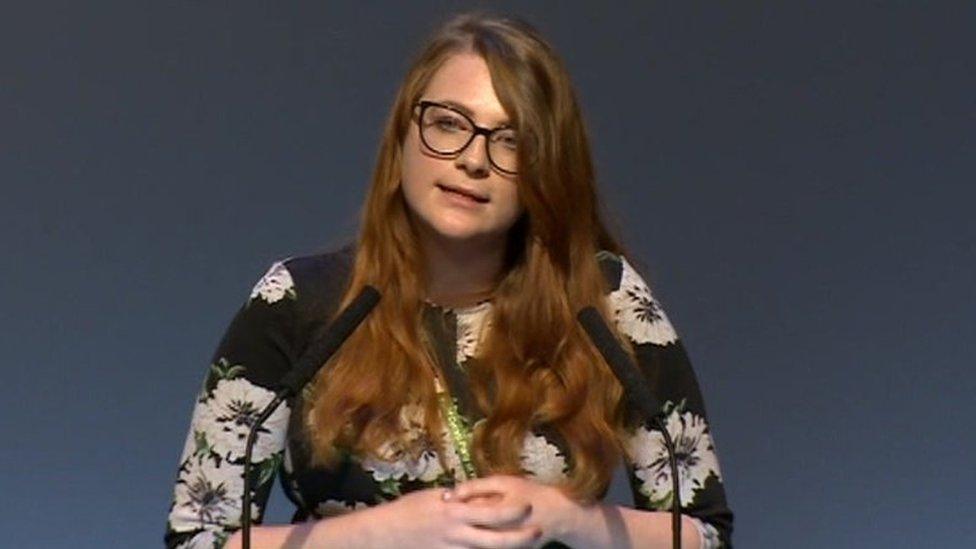
- Published24 July 2023
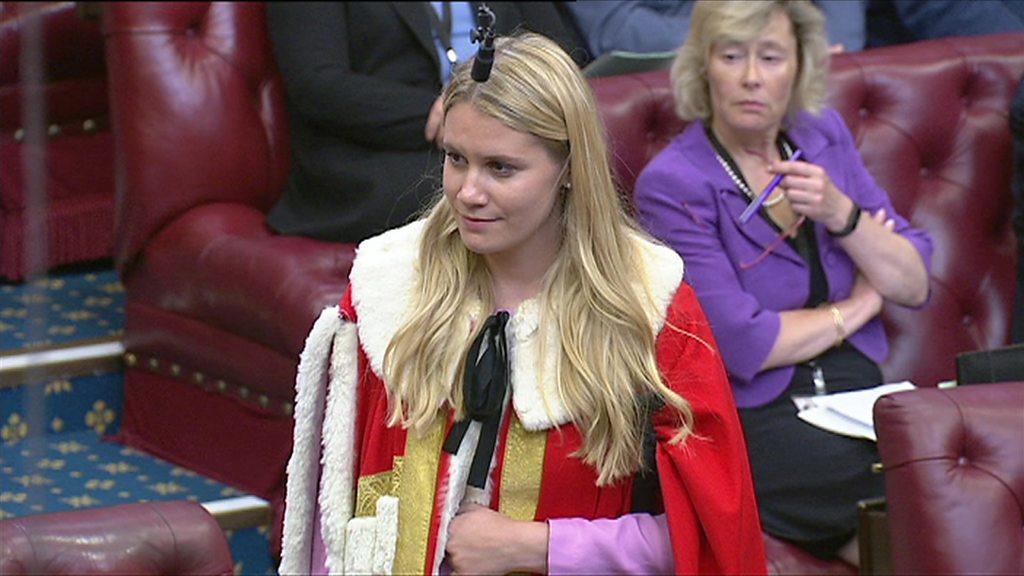
- Published5 September 2024
